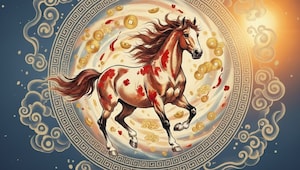To Tweet or Not to Tweet? the Eternal Dilemma Answered
Yes, Twitter’s unforgiving. But here’s why Rega Jha (Editor, BuzzFeed India) would much rather use her 140 characters than stay quiet altogether!

“the routine is pretty set. Roll over. Hit snooze. Doze off. Finally I groan, stretch a little, and bring my phone over my face. With thumbs as my Virgil, the descent through hell begins. E-mails first, a glimpse at the day’s impending tortures. Then WhatsApp, where every morning the 34 notifications I’m excited to unveil turn out to be forwards from extended family. Texts, most of which are from McDonald’s (#RelationshipGoals), and then the holy trifecta of selfie repositories: Snapchat, Instagram, Facebook. Finally, I open Twitter and scroll my way through vitriol into wakefulness.One morning last year, the routine ended with a decision. Like many women on Twitter, I often found my notifications tab brimming over with all manner of gendered and sexualised attacks in response to opinions, links, and, in my case, to goofy jokes and memes. Most days, I thought nothing of it. But that morning, probably having seen some particularly nasty threats, I followed a whim to my neighbourhood police station.“Presstitute... Go to Pakistan... Yeh banda itna gussa kyun hai?” When the officer was done chuckling, he got serious. Hundreds of cyber-crime complaints come in every week, he told me. I could go to Worli (Mumbai) and file one myself. But I shouldn’t hope for much, he said, and then gave me his number and said to call anytime. I left heartened to know that our law enforcers are aware of the forces women battle online, disheartened to know they’re as powerless as us. Over time, grated down by each ‘b*tch’, ‘sl*t’, and ‘man-hating libtard wh*re’, I stopped Tweeting opinions. I figured, I couldn’t piss too many people off with just memes and puns. But even so, some abuse lingered. In a few months, the jokes stopped too. Eventually, I was barely participating at all. I know that ‘people on the Internet are being mean to me’ sounds like a bratty complaint, but imagine this: you get a Gchat from your boss asking why anonymous accounts are Tweeting at him that you’re a sl*t who should be fired. Imagine this: you get messages from numbers you don’t recognise, saying that they know where you work, b*tch, and they’re coming to teach you a lesson. Erasing myself felt like the easiest route to safety, even if it looked a lot like cowardice.
I still lurked, though, and observed as young woman after young woman went silent, withdrew, began erasing herself off the platform like I had. I knew that an epidemic of self-censorship was problematic in a billion ways. But I also knew how these women felt—afraid to unlock their phones, heart stopping with every vibration, strangers becoming threats.
Months later, when I was well on my way to wiping myself off Twitter, a friend called to catch up. She works in media herself, and draws her own fair share of trollage. ‘Today is bad, ya,’ she vented. ‘I Tweeted about free bleeding, and I’ve been getting hate all morning.’ ‘Why do you still bother Tweeting? It’s so nice to read everything without being abused all day,’ I offered.
‘Someone has to...,’ she said.That made me think. Did someone really have to? If so, why? And whose burden is it to do it? Over a few months away from Twitter, I found the clarity that drew me back to it.
Ladies, we enjoy a goddamn buffet of sh*t online. At its most benign, online sexism manifests as requests for ‘sexy time’ piling up in our Facebook inboxes, Instagram comments from strangers spewing Shakespearean praise like ‘gud boobz’ and ‘nyc *ss’, and unsolicited d*ck pics showing up in our Twitter inboxes. At its worst, it’s darker—rape threats, violent and sexually triggering abuse, personal information being exposed, private images being shared. As evidenced by my own journey to erasure, the natural response to such attacks is to disappear. But over months of silently contemplating that emotional response, I realised it isn’t by any means a new one for women. When streets become unsafe to us, we withdraw from them. ‘Don’t go out after 11pm’, we are told by our mothers, and then we tell our daughters in turn. When certain neighbourhoods are deemed threatening to us, we abandon them. When modes of public transport are claimed by sexual violence, we turn to Uber and Ola and rickshaws and walking. When those, too, become life-threatening, we get a bit hesitant leaving home alone. For as long as I can remember, being a woman has been synonymous with being careful. Hidden away from the risk of harm. We’ve denied ourselves a literal world of opportunity.
When we recognise Twitter’s proclivity toward sexual attacks and, in response, withdraw from it completely, we’re setting the same precedent online that we’ve been victims of in the real world for centuries. Social media, which was initially a simple relief from physicality, is now tied inextricably to our real lives. Between Facebook and Twitter, you can find yourself a home, a job, a spouse, and a whole set of friends. Moreover, as Save the Internet demonstrated last month by successfully affecting TRAI’s decision to uphold net neutrality in India, social media is a battleground for democracy, a voting station of its own. By responding to attacks on Twitter by withdrawing from it, I sequestered the platform and, at the end of the day, I was the only person missing out because of it. I called my friend back and asked what keeps her going despite the constant, unrelenting, sexist backlash. ‘You just have to do it,’ she said. ‘If you leave, 10 of your fans will love Twitter a little less. But if you stick around despite being attacked, 10 more girls may grow up thinking that it’s okay for girls to be goofy and have opinions. Right?’
She’s right. And more than anything, we’re in Internet early-days, and each of us has a choice: we can choose to hide from its many monsters, letting its dynamics take whatever shape they will without our participation. Or we can choose to dive the hell in. To take an active part in shaping what will perpetually be the social paradigms of the World Wide Web. We can choose to establish it as a space where women will be unabashed, brave, funny, smart, opinionated, loud, and shameless.
The former choice is a fine one to make. I made it for months and, to be honest, it wasn’t bad at all. But after watching other women fall silent around me, I realised I wanted to give the latter, more idealistic, option a shot.
Just last week, I composed a joke about menstruation and white pants, and I hovered my cursor over the ‘Tweet’ button for a good 10 minutes. I even showed it to my colleagues, and thought of worst-case response scenarios.
My anxieties were manifold and they still are. But then I remembered the mission: to save the Internet from the sexist forces that’ve made our real-world boundaries so small. I thought of the girls in Pakistan who use Tumblr to post photos of ‘Girls In Dhabas’ as a reclamation of a conventionally masculine public space. I thought of the women around India who pioneered the ‘Meet To Sleep’ movement, where women sleep in parks to reclaim their right to be vulnerable and safe in public. I thought of the thousands whose lives could be enriched with access to an Internet that is good to them. I remembered the choice I’d made: to participate in establishing our online world order, and to save it from the forces that ruined the real one.
It was a goofy, mostly inconsequential joke about periods and white pants. But I felt like a goddamn revolutionary when I hit ‘Tweet’.”
By —Rega Jha is the Editor of BuzzFeed India
TAKE THAT! These celebs were bullied...and they fought back like bad-*sses!

ZENDAYA: When users called her parents ugly, she told them to remember that they were “beautiful”and blessed them.

TWINKLE KHANNA: Supporters lashed out when she said the saffron brigade was useless. She called them all cockroaches sprayed with HIT.

OLIVIA WILDE: When they called her a “giant, walking pickle” she said she was a pickle enthusiast.

SONAKSHI SINHA: After being trolled for calling India “BAN-istan”, she took down haters by calling trolls irrelevant in the real world.
more from Life

Why going offline is suddenly Gen Z’s favourite flex

Four celeb-inspired salad recipes are what January lunches should be made of

If you’re celebrating this season, you’ll want to do it at Shangri-La Eros New Delhi

What does it mean to be queer after 'Heated Rivalry' ended?

It's the Year of the Horse and here's what it means for you

If a man wears this, date him….

Vanishing acts or forever energy? Here’s how you can enter the new year with a happy heart

This year’s beauty trends, written all over our faces

Anya Singh is just getting started

Bows are back and they’re not playing cute anymore
